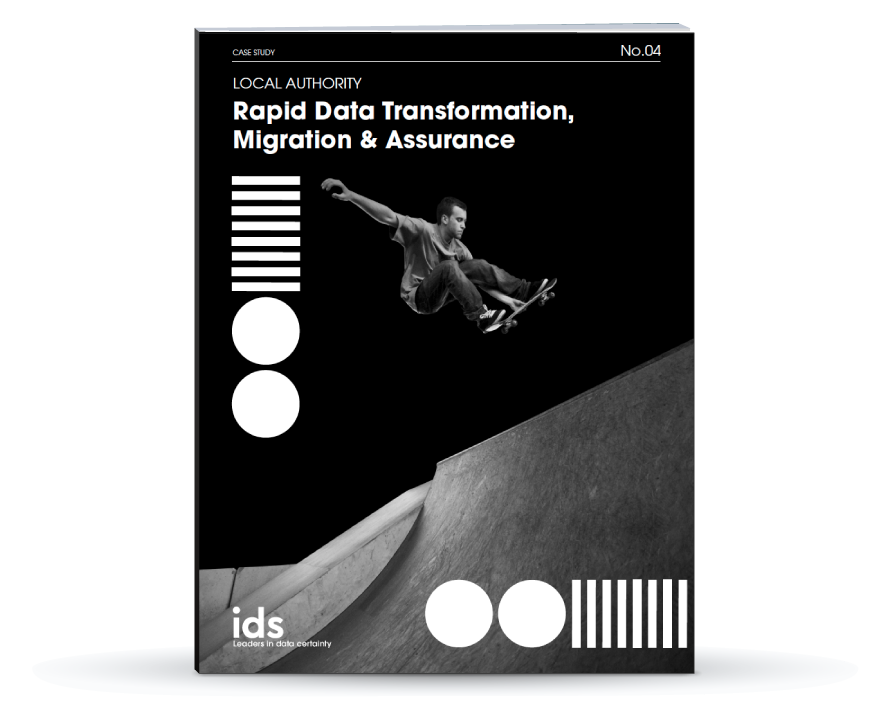The Impact of Poor Data Quality for the Public Sector
.jpg)
Within the government and public sector, leaders are responsible for taking high-pressure decisions that affect the lives of many people. Therefore, there have been many efforts made to measure and improve data quality in this sector.
With the rise of technology, it’s become easier to collect data and analyze it, yet more difficult to control it. Government organizations will collect large amounts of data from various sources, that is then used in different ways and shared with many different people.
In the US, 70% of surveyed government officials said that data problems were impeding their authority’s ability to deliver effective business programs. The government, healthcare, and other public sector organizations must take control of their data. This will reduce the impact of poor data quality so they can make better decisions.
It’s not just the private sector that needs better data quality management practices: it is also the public sector that needs this. The public sector has a history of having poor data quality practices that have caused many problems in the past.
Therefore, it’s so important to reflect on, and change, these practices to avoid crippling business operations in the short and long-term.
Quality of Decisions Made
Poor data quality can be detrimental to business goals. Inaccurate public sector data leads decision-makers to the wrong conclusions and business strategy, delivering no value. This is because bad government data quality can't be used for making the best-informed decisions about what the company should do next.
The impact of poor data quality is not just limited to senior decision-makers and policymakers. It also affects the entire business’ transparency and individuals downstream. These include people trying to make informed decisions about their personal finances or healthcare.
This can lead to risk, a lack of complete data certainty, and vulnerability in the decision-making process.
Undermining Trust in the Government
A recent report found that only 31% of government sector representatives have sufficient trust in their own data and analytics.
When it comes to data quality, public sector organizations are challenged to put data compliance first to meet strict regulations.
In recent years, the public sector has been increasingly using automated solutions, like iData, and data analytics software to help them manage public sector data compliantly.
All whilst improving efficiency, saving money, and increasing accuracy.
The use of algorithms, however, has been criticized because they are not transparent.
The problem lies in the public not knowing how these algorithms work or what factors they consider. This lack of transparency makes people distrust government data quality algorithms and automation. Governments cannot afford to suffer reputation damage among their citizens this way.
Increased Costs
With bad data quality, public sector organizations face problems with service delivery, transparency, and trust. Yet, they may also suffer costs of bad data internally including:
Time costs: Poor data quality takes up a lot of dedicated time to fix from employees specializing in data management, that could be used more efficiently elsewhere.
Financial costs: The vast volumes of public sector data cost more money to improve than necessary, because organizations need to invest excessive amounts in fixing their processes and improving the accuracy of their datasets. Equally, bad data that’s not fixed can cost businesses 15 - 25% of revenue.
Reputation costs: If government data quality is not fixed, this an issue that can affect an organization’s reputation, as it often leads to data breaches and incurred fines.
Waste and Inefficiencies
Data scientists are the secret weapon of any company. They are in high demand and companies are willing to pay a lot for their services.
But there is a problem: data scientists spend their time doing things like cleaning up datasets or analyzing data. According to CrowdFlower, data scientists spend nearly two-thirds of their time cleaning and organizing bad data instead of analyzing and creating insights.
These activities may be important, but they’re inefficient in the overall corporate strategy for public sector businesses and don't lead to product innovation or identifying go-to-market opportunities.
When it comes to data quality, public sector businesses are starting to realize how much they can save by investing in data quality frameworks and policies to help build a data quality culture. Such data governance practices help establish a common language for stakeholders for continued data success.
They should use these frameworks as a way of establishing standards to ensure they’re not wasting taxpayer money by investing in inefficient projects.
Kovenant™ is a data quality assurance framework, by IDS, that helps public sector organizations to take back control of their data. From the first day of implementation, the methodology provides a foundation for data quality assurance and governance, whilst setting standards for metadata management.
Get in touch to find out how Kovenant™ can take back control of your data for future success.

Performing Rapid Data Transformation for a Local Authority
Completing with a 48% reduction in time to migrate from SAP with QA at the heart of the approach.



.jpg?width=1200&name=IDS_Website-Image73_(1200x628).jpg)
